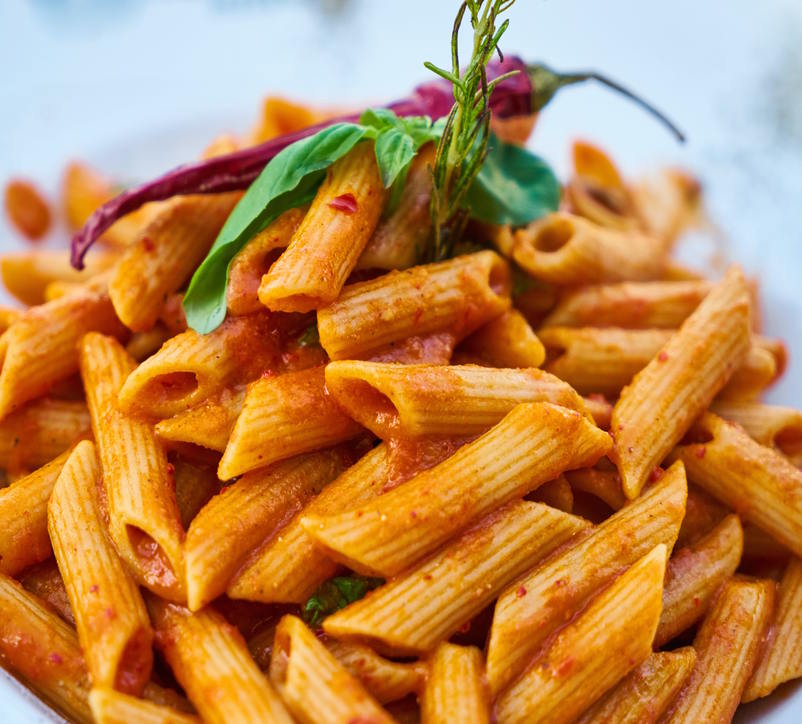
In Italian the word “arrabbiata” means enraged, angry or furious. This sauce is very simple and quite spicy. It’s especially good on a cold winter day in front of a roaring fire. The recipe below serves 6 as a first course or 4 as a main course. It is enough sauce for 1 pound (500 grams) of pasta. I suggest penne or another hollow or twisted pasta rather than a spaghetti-style noodle.
If you don’t have fresh parmesan cheese available, just don’t put cheese on the sauce – the Italians likely wouldn’t anyway, but we like the extra touch. Don’t use pre-grated cheese out of a container, please.
Ingredients:
- 1 tablespoon ITALICO BIO Organic Extra Virgin Olive Oil
- 1 cup chopped onion
- 4-6 minced garlic cloves
- ½ cup dry red wine (or 2 tablespoons of balsamic vinegar)
- 1 tablespoon sugar
- 1 tablespoon chopped fresh basil or 1 teaspoon of dried
- 1 teaspoon crushed red pepper or chilies
- 2 tablespoons tomato paste
- 1 tablespoon fresh lemon juice
- ½ teaspoon Italian seasoning
- ¼ teaspoon freshly ground black pepper
- 2 (14.5 ounce) cans diced tomatoes, undrained
- 2 tablespoons chopped fresh parsley
- ¼ cup freshly grated parmesan cheese
Instructions:
Heat the oil in a saucepan or large skillet over medium/medium high heat.
Add the onion and sauté about 3 minutes, then add garlic and continue cooking about 2 more minutes – don’t let them get brown, just golden.
Stir in the next 8 ingredients (red wine through tomatoes); bring to a boil.
Reduce the heat to medium and cook, uncovered, about 15 minutes, until it is a nice consistency. Stir in parsley and remove from heat.
Combine the sauce with the pasta that you have prepared at the same time. Place into 4 or 6 bowls and grate the cheese over the top.
Wine suggestion:Because this is a spicy dish, you need a medium-bodied red wine that will stand up to the flavor. We suggest an Italian Primitivo. These wines come mostly from Puglia, Italy’s boot. The wine is clean and grapey tasting, with touches of plums and raisins. If a wine from the primitivo grape is not available, you can substitute a California zinfandel (not a white zin, the real thing). The California vines that produce this wine are thought to have originated in Italy many years ago.

